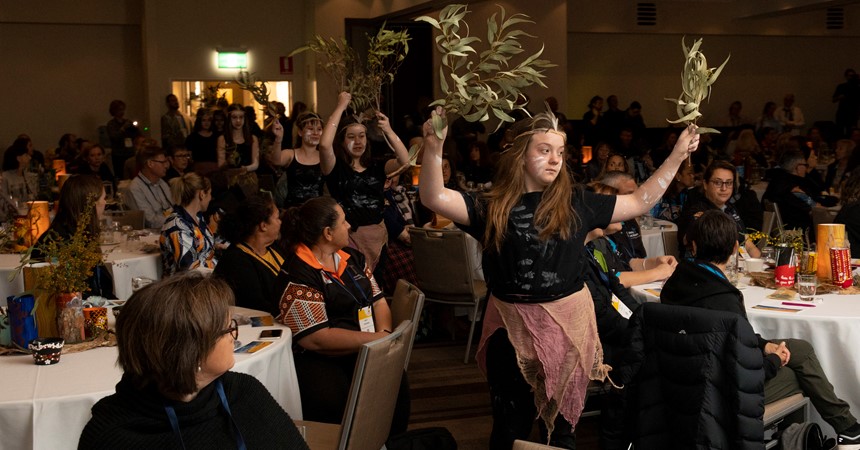The theme “Punaal, Ponte-Boone, Biamie, - Spirit of Sun, Moon and Creator” was inspired by the stories of our beautiful region, which is rich in culture, ritual, ceremony, language and connection to country. Punaal the sun spirit symbolises life, energy, force, strength, power, and rebirth just as the yellow on our Aboriginal flag represents the sun - the giver of life. Ponto-Boone the moon spirit symbolises intuitive thinking as well as emotions - the moon is a soul mate to water. The moon is a divine matron of all sea creatures and nocturnal animals and also the queen of the night. Biamie our Creator Spirit “conveys stories of the creation of the landscape” (James Wilson-Miller). The Wonnarua believe that Biamie also created the spirit Kawal (eagle), who is thought to keep watch over them today. James Wilson-Miller (Wonnarua Elder) describes Biamie Cave as “the most significant of all for our Wonnarua descendants. It represents the very beginning of all creation and spirituality, the very essence of our existence. Biamie lives in all of us”.
As Catholics this echoes the words of Saint Paul, “You must know that your body is a temple of the Holy Spirit who is within—the Spirit you have received from God” (Corinthians 6:19).
Catholic Schools NSW are having a powerful impact on the educational outcomes of our Aboriginal and Torres Strait Islander students as our numbers increase every year. The 2019 conference provided the ideal forum to celebrate these achievements, share innovation, and opportunities to further the background and understandings for this area. It also explored how to best support our students.
Acting director of schools Gerard Mowbray set the agenda for the conference with his opening remarks about providing the best learning outcomes for indigenous students in Catholic schools.
“We must create a culture of high expectations and learning growth for Aboriginal and Torres Strait Islander students. The learning gap is still readily evident and confronts us to unlock solutions that will be relentlessly pursued,” he said. “We are committed to building whole school awareness of closing-the-gap initiatives. We continue to champion reconciliation.”
The Diocese of Maitland-Newcastle now has 59 schools with 19,600 students, including 1301 Aboriginal and Torres Strait Islander students. While the state average indigenous population is 3.3 per cent, in our Diocese the average population in our schools is 6.2 per cent. Schools’ employees include more than 50 identified Aboriginal personnel, as well as 95 staff members specifically working in the area of Aboriginal education.
